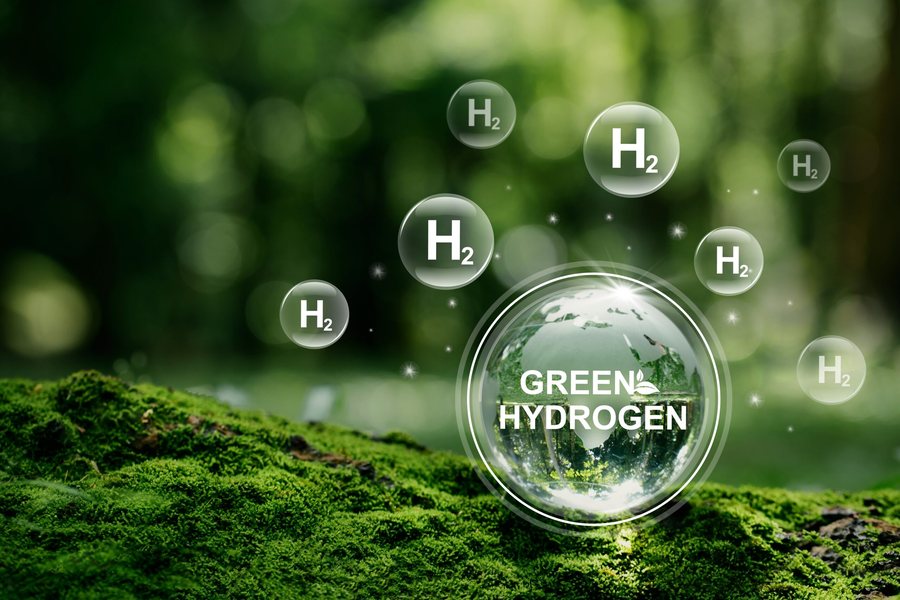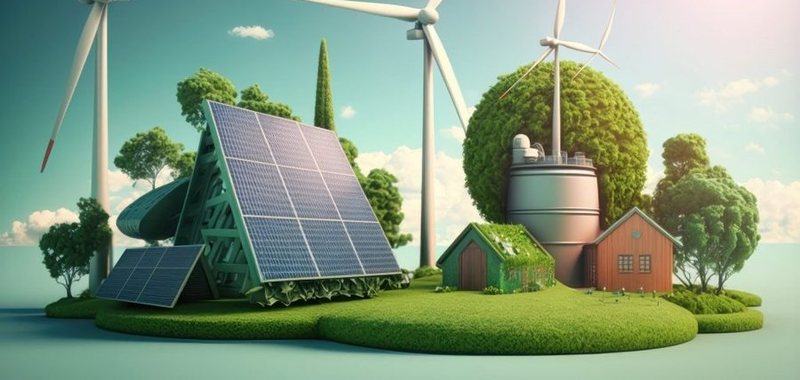Green hydrogen is very expensive/ Many companies are canceling projects and cutting investments

Green hydrogen developers are canceling projects and cutting investments around the world, raising the possibility of a longer-than-anticipated reliance on fossil fuels.
Industries that were hard to power, and were seen as ideal candidates for green hydrogen, such as steelmaking and long-distance transportation, have found that switching to the low-carbon fuel seems prohibitively expensive.
"There was a lot of promise, there was a lot of promise all the time. People didn't take into account that hydrogen is great as a chemical, but it's not very good as a fuel," said Peter Schniering, executive director of the German nonprofit Think Thank Future Cleantech Architects.
Many governments have long supported the development of green hydrogen - produced through electrolysis that splits water into hydrogen and oxygen using electricity from renewable sources - to help decarbonize energy, transport and industry.
Countries such as Australia, Britain, Germany and Japan announced ambitious investment strategies that they hoped would drive down costs and eventually create a profitable green hydrogen sector that would no longer need support.
German company Dirostahl, which makes components for wind turbines, ships and oil and gas drilling pipes, depends on natural gas-fired furnaces and is looking for a replacement.
However, green hydrogen is still very expensive. Bids for the fuel do not come below 150 euros per megawatt hour (MWh), while natural gas can be purchased for 30-35 euros/MWh, said Executive Director Roman Diederichs.
Another problem is that hydrogen is difficult to store because it requires high-pressure tanks, extremely low temperatures, and tends to leak, making transportation dangerous through old gas pipelines while new infrastructure is being built.
Prices remain high due to the high cost of electrolyzers needed for large-scale production, infrastructure bottlenecks, and rising energy costs resulting from regulations on what constitutes green hydrogen.
Several European countries have scaled back their ambitions. Italy recently shifted more than €600 million in post-pandemic funding from hydrogen to biomethane. France lowered its 2030 hydrogen electrolysis capacity target by more than 30% in April, and Portugal has cut its electrolysis capacity ambitions by 45%.

Greece, national plan for water shortage/ Mitsotakis: We are preparing for the main challenges of the next 30 years
Greek Prime Minister Kyriakos Mitsotakis has presented a plan to tackle the growing problem of water scarcity. The national plan addresses the urgent need......

"Data centers, with renewable resources"/ UN chief Guterres calls on the technology sector
UN Secretary-General António Guterres called on technology companies to power data center construction with 100% renewable energy by 2030, even as the industry......

EU-US, close to trade agreement/ US officials are "optimistic" that a deal could be close
German Chancellor Friedrich Merz said negotiations between the European Union and the United States on a trade deal were making progress. Speaking in Berlin......

Seven abandoned quarries in Dajt will be turned into green areas / Project launches to rehabilitate environmental "wounds" on Tirana's symbolic mountain
Dajti Mountain, the natural symbol of Tirana and one of the most frequented areas by visitors and tourists, will be included in a broad project to restore......

Project/ Panoramic balconies in the 12 regions of Albania/ Tender opens for the construction of ecological structures with a tourist function
The National Agency for Protected Areas (AKZM) has announced a tender procedure for the design of a new project that aims to build panoramic balconies in......

Official/ Property revaluation will be done by 5%- Implementation period will be from January 1 to September 30, 2026
The government paves the way for another real estate revaluation process. From January 1 to September 30, 2026, citizens and businesses will have the......

What did we export and to which countries? Italy and Kosovo received the most from Albania
Albania continues to export and import various products according to domestic demands and the needs of trading partners. According to data published by......

Online purchases and postal deliveries from abroad/ Here's what you need to know about the tax-free limit
At a time when online shopping has become an inseparable part of daily life, Albanian Customs informs through a post on social networks that citizens who......


















